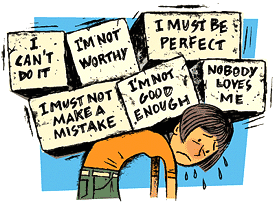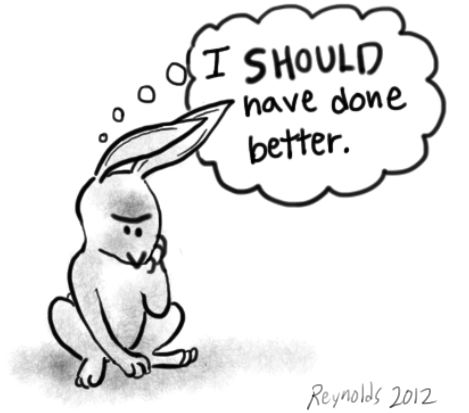I recently attended a workshop called "Thwarting the Inner Critic: Generating Creativity and Resilience Under Pressure" at the New Venture West coaching school in San Francisco. In my coaching practice and in my previous life as a management consultant in a high-intensity work environment, I often observe self-doubt and self-limiting beliefs, particularly in highly-driven, type-A personalities. Many of us believe that this inner critic of ours keeps us staying hungry, working harder and achieving more in life. However, along the way to achieving more, our inner critic also makes us constantly unhappy and unsatisfied with what we have and sometimes, who we are. I wondered how we could continue to grow and develop with joy instead of having our inner critic constantly breathing down on our necks, making us feeling ashamed or guilty.
It turned out that inner critic exists in every human being and it is deeply rooted in our developmental process as a child. How harsh your inner critic is often depends on the environment you grew up in and the type of relationships you had with your parents. While therapy might be needed to combat severe self-criticism, many of us can consciously work on silencing our inner critic to become more confident and joyful in life.
The first step to defending against our inner critic is to recognize its existence and become aware of it when it shows up. Because not all inner critics take the same form and speak in the same volume, you may find this step quite easy or relatively hard. For example, in my class, some students can hear the inner critic's voice constantly, and some can even visualize it naturally. It is not the case for me. My inner critic is much more subtle and calm. It does not speak in loud voice in my head or stares despicably from above. Most of the time, my inner critic takes a rational stance and almost blends in with my own creative, free-self. The challenge for me is to tease out the inner critic from my own voice. Here are some tips on how to recognize your inner critic.
Continue here to read Part II of this topic
- Inner critic is almost always judgmental and punitive. Observe and listen carefully for that tone in yourself. That is your inner critic speaking.
- Think of the last time you felt judged by someone. What did you feel? Angry? Hurt? Defensive? Uncomfortable? Deflated? Wanted to hide? Not so great feelings I bet. Inner critic often elicit the same feelings because it's a judgement you pose on yourself. So the next time you notice a contraction of energy, a feeling of shame, guilt or being attacked, recognize that this could be your inner critic attacking.
- Notice whenever you tell yourself "I should/shouldn't (have)...". There often is an inner critic in hiding.
Continue here to read Part II of this topic




